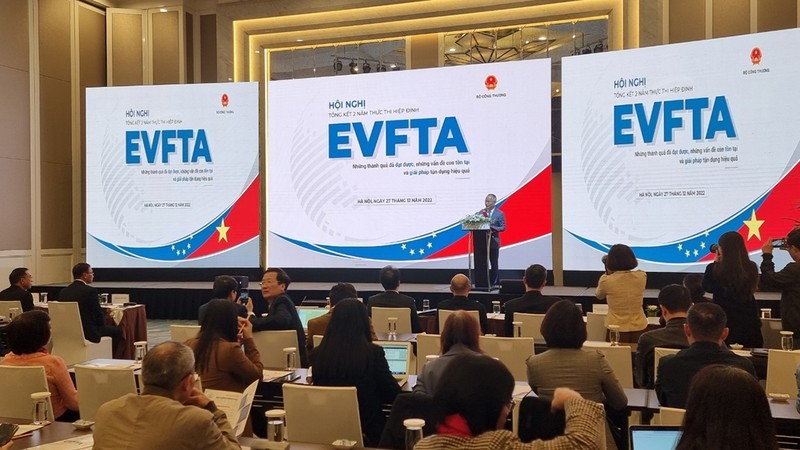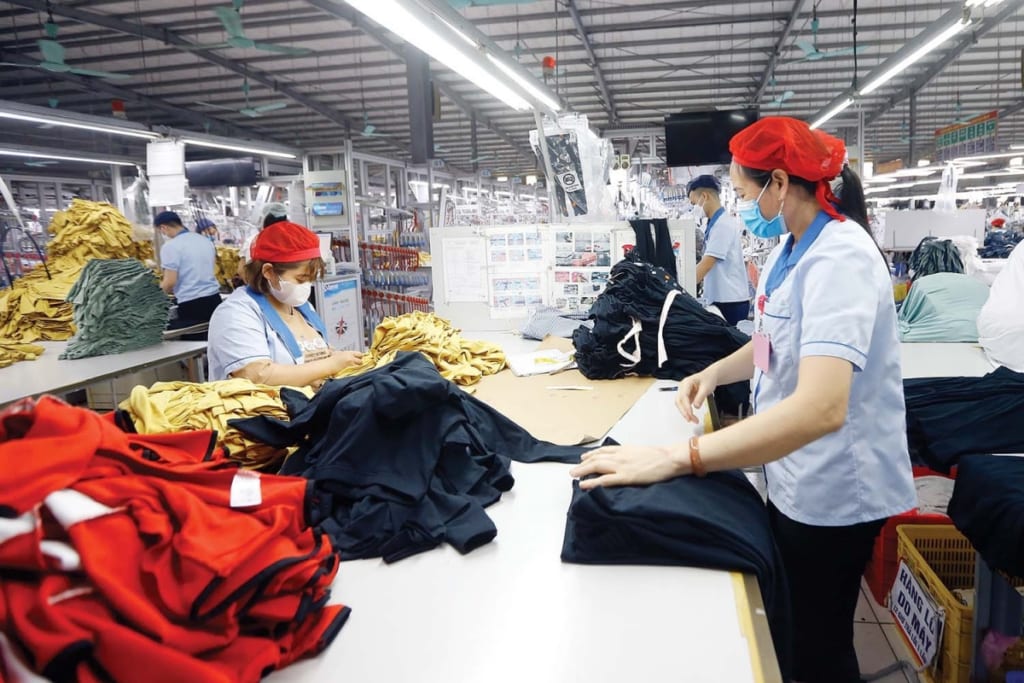As populations around the world age, the demand for dedicated, skilled caregivers is rising. Countries like Japan, Germany, and the United States face unprecedented shortages of healthcare workers to support their elderly populations. Amid this growing need, Vietnamese care workers are emerging as reliable, compassionate, and highly skilled professionals who fill critical gaps in global healthcare. This article explores the unique qualities, training, and contributions of care professionals from Vietnam to international healthcare, particularly in elder care.
1. Global Demand for Caregivers in Aging Populations
The global population of individuals aged 65 and above is growing rapidly. According to the World Health Organization (WHO), by 2050, the world’s elderly population will double, creating an urgent need for skilled caregivers. Many countries are already experiencing shortages in this field, particularly in roles involving long-term and specialized care for the elderly.
Why Vietnam’s Care Workforce Is in Demand
Vietnamese caregivers bring a unique blend of dedication, adaptability, and compassion that makes them particularly well-suited for elder care. As the global shortage of care professionals intensifies, these workers, with their culturally ingrained respect for elders and strong work ethic, are becoming a preferred choice for families and healthcare facilities seeking reliable and compassionate care.
2. Key Skills and Traits of Vietnamese Care Professionals
The qualities that make care professionals from Vietnam stand out in global healthcare are rooted in their cultural background, training, and personal commitment to delivering quality care.
Empathy and Patience
Vietnamese caregivers bring a high level of empathy to their roles, which is essential in elder care. Many of their tasks involve daily interaction with patients who may be experiencing loneliness, health issues, or cognitive challenges. Their patience and understanding foster trust, which is crucial for long-term care relationships.
Adaptability in Multicultural Settings
As international caregiving roles require interaction with patients from diverse backgrounds, adaptability is critical. Vietnamese caregivers are known for their ability to adjust to different cultural settings and work environments. This adaptability allows them to provide personalized care and make patients feel respected and understood, regardless of cultural differences.
Commitment to Quality Care
Care workers from Vietnam are often praised for their diligent and meticulous approach to caregiving. This commitment ensures that they are attentive to details, from following specific medical routines to monitoring patients’ daily activities and ensuring their comfort.
3. Specialized Training and Certification for Vietnamese Care Workers
Vietnam has established vocational programs aimed at equipping workers with the skills required for healthcare roles. This training, combined with practical experience, prepares Vietnamese caregivers for international placements where quality standards are often high.
Vocational Programs Focused on Patient Care
Many Vietnamese vocational schools offer specialized healthcare training programs. These courses cover a range of subjects, from patient care fundamentals to medical assistance techniques. Graduates learn essential skills such as personal hygiene care, first aid, and emergency response, which are indispensable in elder care.
Language Training and Communication Skills
Effective communication is crucial in healthcare, particularly for care workers relocating abroad. Many receive language training in English, Japanese, or German, allowing them to communicate effectively with patients and healthcare teams. This proficiency helps them deliver responsive, professional care.
On-the-Job Internships and Real-World Experience
Before working internationally, many Vietnamese caregivers gain experience through internships at hospitals and elder care facilities in Vietnam. These internships allow them to apply their training in real-life scenarios, building confidence and skills for demanding roles abroad.
4. Roles and Responsibilities of Vietnamese Care Workers in International Healthcare
In global healthcare settings, Vietnamese care professionals are typically responsible for a range of tasks that require both skill and compassion.
Personal Care and Daily Assistance
One of the primary duties of these caregivers is assisting patients with daily tasks such as bathing, dressing, and meal preparation. These tasks require a high degree of trust, as workers help individuals with intimate and essential routines. Vietnamese workers’ attentiveness to personal care fosters a comforting environment for patients.
Medical Assistance and Record-Keeping
Care workers often perform basic medical tasks, such as monitoring vital signs and assisting with medication under supervision. Their training in record-keeping ensures accurate patient histories, which is crucial for continuity in healthcare.
Emotional and Companionship Support
Beyond physical care, companionship is essential for elderly patients, many of whom suffer from loneliness. Vietnamese caregivers provide emotional support, engage patients in conversation, and create a friendly, supportive atmosphere, improving patients’ overall well-being.
5. Cultural Traits that Enhance the Appeal of Vietnamese Care Workers
Vietnamese culture places a strong emphasis on respect for elders and compassion, traits that align naturally with caregiving.
Respect for Elders
In Vietnamese society, respecting elders is a core value, and this respect carries over into professional care settings. Vietnamese caregivers treat elderly patients with dignity and sensitivity, making them highly effective in elder care roles, where understanding and patience are paramount.
Politeness and Patience
Politeness and a calm demeanour are qualities deeply rooted in Vietnamese culture, creating a harmonious caregiving environment. This politeness reassures patients and helps build a positive rapport, which is especially valued in roles that involve close, daily interactions.
Community and Family-Oriented Mindset
Vietnamese caregivers often approach their caregiving roles with a family-like perspective, creating a comforting atmosphere for their patients. This sense of family makes patients feel secure and valued, a quality that is highly appreciated by international employers.
6. Challenges Faced by Vietnamese Care Workers in International Roles
Working abroad can be challenging for Vietnamese caregivers, who must adapt to new environments, and care standards, and often face personal sacrifices.
Adjusting to New Care Standards and Procedures
Care standards vary widely by country, and Vietnamese workers may undergo additional training to meet these standards. However, their adaptability and eagerness to learn allow them to adjust quickly and perform effectively.
Language Barriers
While many caregivers receive language training, regional accents and dialects can still present challenges. However, they often view these challenges as opportunities to improve their language skills over time.
Long-Distance Work Away from Family
Working internationally often means long periods away from family, which can be difficult for Vietnamese workers. Despite these personal sacrifices, many are motivated by the opportunity to support their families financially and gain valuable experience abroad.
7. Success Stories of Vietnamese Care Workers in Global Markets
Numerous Vietnamese caregivers have built successful careers abroad, contributing meaningfully to the lives of the elderly and making a positive impact on the healthcare sector.
Individual Successes and Career Growth
Many care professionals from Vietnam have progressed from entry-level positions to more specialized roles, including supervisory positions. Their career advancements demonstrate the dedication and impact they bring to the healthcare industry.
Employer Testimonials and Patient Feedback
Employers and patients often praise Vietnamese caregivers for their dedication, patience, and quality of care. Testimonials from families and healthcare facilities highlight the positive influence Vietnamese workers have in creating safe, caring environments.
8. Future Prospects for Vietnamese Care Workers in Global Healthcare
The demand for Vietnamese care professionals is expected to continue rising as aging populations increase worldwide. Vietnam’s emphasis on vocational training and language programs positions its care workers as a vital resource for international healthcare.
Expanding Demand in Aging Regions
Countries with aging populations, such as Japan and parts of Europe, are seeking more care workers. Vietnamese caregivers, with their cultural and professional suitability, are well-equipped to meet this demand.
Government and Vocational Support in Vietnam
Vietnam’s government is actively supporting vocational and healthcare training, ensuring that these workers are well-prepared for global roles. Programs focused on elder care, language training, and cultural adaptability make Vietnamese workers competitive and attractive to international employers.
Opportunities in Technological and Remote Care Roles
With healthcare increasingly integrating technology, Vietnamese caregivers are learning to use digital tools for patient monitoring, virtual communication, and health tracking. This adaptability to technological advancements enhances their relevance in modern healthcare.
Conclusion
Vietnamese caregivers are proving to be invaluable in the global healthcare industry. With their dedication, cultural sensitivity, and comprehensive training, they are well-suited to meet the needs of aging populations. As the world’s demand for skilled caregivers rises, care professionals from Vietnam are poised to play a critical role in supporting healthcare systems around the world.
Their unique blend of compassion, respect, and professionalism ensures that they remain an essential resource for elder care, providing comfort and companionship to patients while upholding the high standards of international healthcare.




